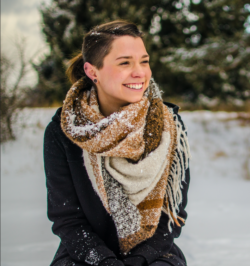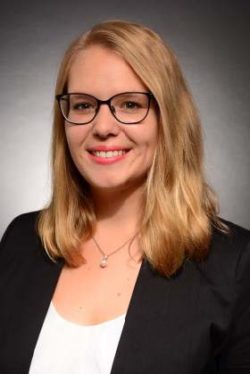CLER Conversation: Language Variation in Early Childhood

- Date
- Thursday 24 February 2022, 3 - 4pm GMT
- Location
- Zoom
After registering, you will receive a confirmation email containing information about joining the Zoom meeting.
Nathalie Czeke & Jasmin Rimpler: Remote Testing of the Familiar Word Effect With Non-Dialectal and Dialectal German-Learning 1–2-Year-Olds
Variability is pervasive in spoken language, in particular if one is exposed to two varieties of the same language (e.g., the standard variety and a dialect). Unlike in bilingual settings, standard and dialectal forms are often phonologically related, increasing the variability in word forms (e.g., German Fuß “foot” is produced as [fu s] in Standard German and as [f s] in the Alemannic dialect). We investigate whether dialectal variability in children’s input affects their ability to recognize words in Standard German, testing non-dialectal vs. dialectal children. Non-dialectal children, who typically grow up in urban areas, mostly hear Standard German forms, and hence encounter little segmental variability in their input. Dialectal children in turn, who typically grow up in rural areas, hear both Standard German and dialectal forms, and are hence exposed to a large amount of variability in their input. We employ the familiar word paradigm for German children aged 12–18 months. Since dialectal children from rural areas are hard to recruit for laboratory studies, we programmed an App that allows all parents to test their children at home. Looking times to familiar vs. non-familiar words were analysed using a semi-automatic procedure based on neural networks. Our results replicate the familiarity preference for non-dialectal German 12–18-month-old children (longer looking times to familiar words than vs. non-familiar words). Non-dialectal children in the same age range, on the other hand, showed a novelty preference. One explanation for the novelty preference in dialectal children may be more mature linguistic processing, caused by more variability of word forms in the input. This linguistic maturation hypothesis is addressed in Experiment 2, in which we tested older children (18–24-month-olds). These children, who are not exposed to dialectal forms, also showed a novelty preference. Taken together, our findings show that both dialectal and non-dialectal German children recognized the familiar Standard German word forms, but their looking pattern differed as a function of the variability in the input. Frequent exposure to both dialectal and Standard German word forms may hence have affected the nature of (prelexical and/or) lexical representations, leading to more mature processing capacities
Session Chair: Dr Richard Badger and Contributions from: Dr Paula Clarke

Nathalie Czeke (Centre for Language Education Research, School of Education, University of Leeds) studied English (Literature/Linguistics), Politics and Economics at the University of Konstanz, Germany, and received her teaching degree (MA) in 2017. During her studies she worked as a research assistant at the BabySpeechLab as well as the Centre for Multilingualism at the University of Konstanz. Her interest in language acquisition research also led her to the Infant Studies Centre at the University of British Columbia in Vancouver, Canada, where she worked with Dr. Janet Werker and her team during consecutive research stays in 2015, 2016 and 2019. After graduating and before joining the University of Leeds, Nathalie worked as a research fellow both at the BabySpeechLab and the PhonLab at the University of Konstanz where she also taught and tutored courses at the Department of Linguistics. Nathalie is now an early-stage researcher in the Marie Skłodowska Curie Innovative Training Network, Comm4CHILD. Her PhD research is concerned with multimodal communication in the presence of sensory and communication asymmetries, i.e. communicative environments in which interactants do not share the same experience, skills and access to language.

Jasmin Rimpler (Institute of Phonetics and Speech Processing, University of Munich) is a PhD candidate and a scientific staff member of the DFG project “Typology of vowel and consonant quantity in southern German varieties: acoustic, perception, and articulatory analyses of adult and child speakers (project stage 2)”. Her PhD project focuses on micro- and macroprosodic differences between southern German varieties. Previously, she studied Italian (BA major) and French (BA minor) Studies at the University of Konstanz. There, she also obtained her Master’s degree in Multilingualism (Thesis title: „Transfer of intonational form in second language acquisition“). Until 2020, she worked as intern and research assistant at the Baby Speech Lab and the PhonLab of the University of Konstanz.
